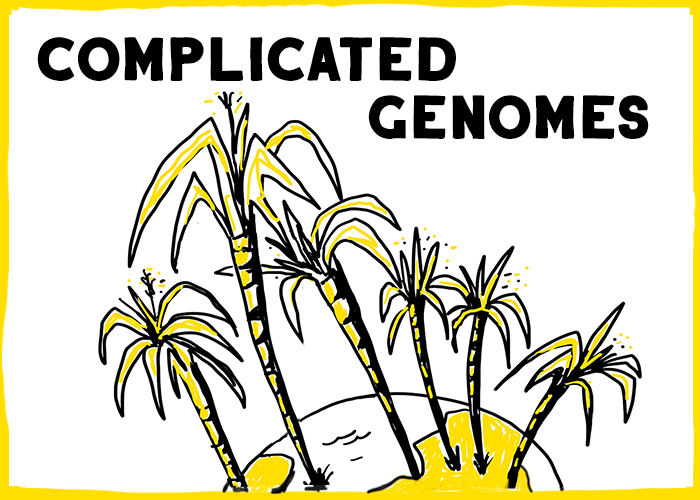HudsonAlpha Institute contributes to largest cancer genome study from NIH consortium
HUNTSVILLE, Ala – Integrating 500 patient samples and multiple genomic technologies, The Cancer Genome Atlas Research Network has, according to a release by the National Institutes of Health, assembled the most comprehensive view of cancer genes for any cancer type to date. The analyses of data are reported in the June 30 issue of Nature.
According to Devin Absher, Ph.D., faculty investigator at the HudsonAlpha Institute for Biotechnology, and a member of the multi-organization team contributing to the analyses, key findings of this publication include the identification of a set of genes that are predictive of drug response.
“One of the benefits of doing a comprehensive analysis the way TCGA has done, is the integration of multiple types of data,” said Absher.
“The group examined how genes are expressed, whether they’ve been deleted or amplified and what point mutations might exist in those genes.” It is the integrated analyses of these factors and other data, Absher noted, that will lead to better understanding of drug response.
According to NIH, serous adenocarcinoma is the most prevalent form of ovarian cancer, accounting for about 85 percent of all ovarian cancer deaths. TCGA researchers completed whole-exome sequencing, which examines the protein-coding regions of the genome, on an unprecedented 316 tumors. They also completed other genomic characterizations on these tumors and another 173 specimens. Four subtypes of cancer were identified.
Among specific findings is the confirmation that mutations in a single gene, TP53, are present in more than 96 percent of all such cancers.
Additionally, mutations in BRCA1 and BRCA2 genes, which are associated with some forms of breast cancer, also confer increased risk for ovarian cancer. In this study, approximately 21 percent of the tumors showed mutations in these genes. Analysis of these tumors confirmed observations that patients with mutated BRCA1 and BRCA2 genes have better survival odds than patients without mutations in these genes. Investigators identified that the mechanism by which the BRCA1 andBRCA2 genes become defective also relates to survival. If either of the BRCA1 and BRCA2 genes is mutated, there is improved survival duration.
“HudsonAlpha’s role in the TCGA study of ovarian cancer,” said Absher, “was to identify amplifications and deletions in the genome.” Absher explained these instances are when genes or other regions of the genome have been lost or replicated multiple times. Those events, he added, can contribute to how tumors progress and how they respond to certain drugs.
According to Chris Gunter, Ph.D, director of research affairs at HudsonAlpha, TCGA work on ovarian cancer contributes two advances in drug treatment for patients. “First, we learned that up to 50 percent of ovarian tumors may be responsive to a type of drug called PARP inhibitors, which are already approved and ready for use. Second, HudsonAlpha’s research and data on amplifications and deletions in the genome suggested new regions to be investigated as potential drug targets in ovarian cancer overall, as well as in specific subtypes of ovarian cancer.” This, she confirmed, is a step closer to delivering individualized treatments for women grappling with the disease.
“It is exciting to be part of such a large study that integrates multiple, genomic characterization platforms,” said HudsonAlpha President Rick Myers, Ph.D. “We now know more about ovarian cancer than ever before. This voluminous data set that HudsonAlpha has helped to compile is an invaluable resource for basic and clinical researchers who are working to improve methods for diagnosing and treating ovarian cancer.”
TCGA is jointly funded and managed by the National Cancer Institute (NCI) and the National Human Genome Research Institute (NHGRI), both part of the National Institutes of Health.
A detailed press release on the study is available from the National Institutes of Health at http://nih.gov/news/.
Media Contact: Beth Pugh
bpugh@hudsonalpha.org
256-327-0443
About HudsonAlpha: HudsonAlpha Institute for Biotechnology is a nonprofit institute dedicated to innovating in the field of genomic technology and sciences across a spectrum of biological problems. Its mission is three-fold: sparking scientific discoveries that can impact human health and well-being; fostering biotech entrepreneurship; and encouraging the creation of a genomics-literate workforce and society. The HudsonAlpha biotechnology campus consists of 152 acres nestled within Cummings Research Park, the nation’s second largest research park. Designed to be a hothouse of biotech economic development, HudsonAlpha’s state-of-the-art facilities co-locate scientific researchers with entrepreneurs and educators. The relationships formed on the HudsonAlpha campus allow serendipity to yield results in medicine and agriculture. Since opening in 2008, HudsonAlpha, under the leadership of Dr. Richard M. Myers, a key collaborator on the Human Genome Project, has built a name for itself in genetics and genomics research and biotech education, and boasts 26 biotech companies on campus.

